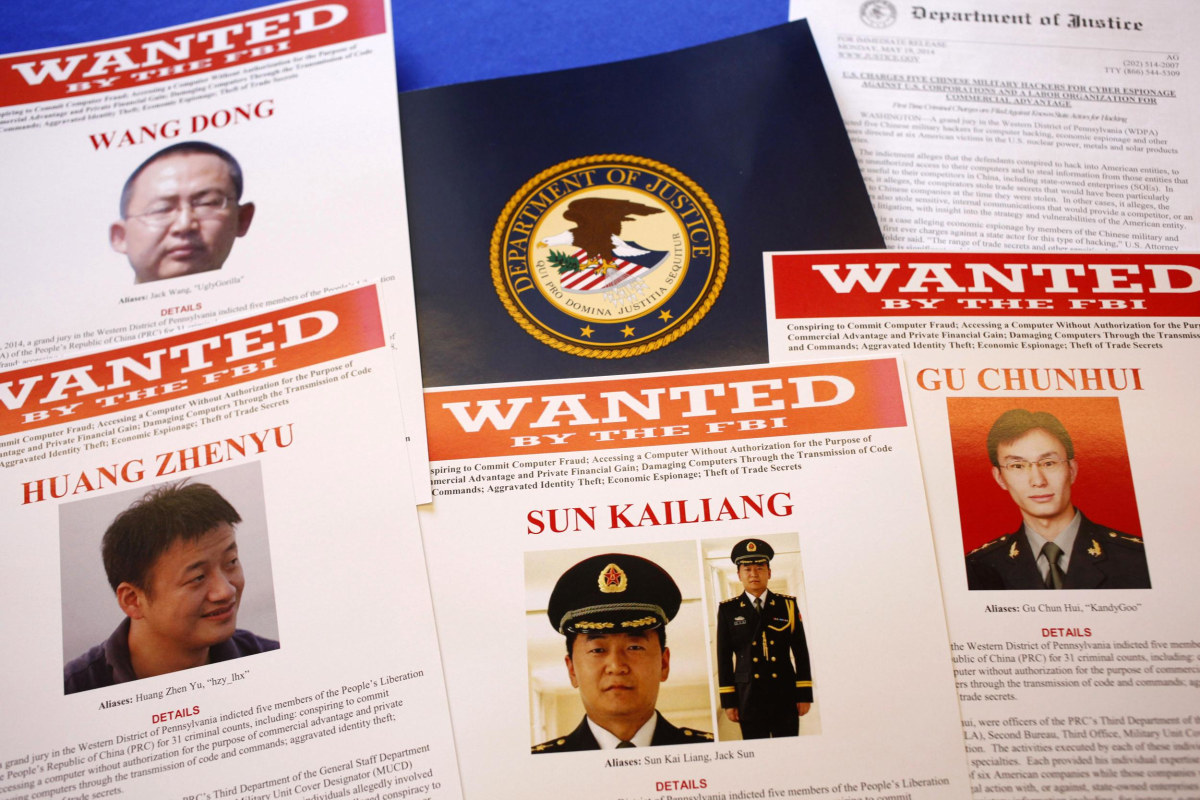China's theft of secrets threatens US

This is the damning conclusion of a 850-page congressional report produced under the chairmanship of the Republican senator Christopher Cox, which has taken five months to publish in the face of White House opposition.
The report says China's nuclear arsenal is on a par with America's.
The pursuit of foreign military technology is China's official policy, it says. China seeks US military technology "by any means - legal or illegal" as part of its strategy of regaining Taiwan and becoming the primary power in Asia.
It adds: "These goals conflict with current US interests in Asia and the Pacific."
It says confrontation with China cannot be dismissed.
The thefts from the US national laboratories in New Mexico and California "began at least as early as the late 1970s and significant secrets are known to have been stolen as recently as the mid-1990s." They are almost certainly still going on.
Security at the US national nuclear weapons laboratories "does not meet even minimal standards," the report says.
"Every currently deployed thermonuclear warhead in the US ballistic missile arsenal," it says, is involved. The stolen secrets also include classified information on the so-called neutron bomb, which is designed to kill people without destroying buildings and property.
China now has the infrastructure and the technical ability to make use of the stolen warhead designs in its next generation of nuclear weapons. The first Chinese mobile intercontinental ballistic missiles are expected to be tested this year and could be deployed as early as 2002, the report says.
It adds that the US became aware of the magnitude of the counter-intelligence problem at the national laboratories in 1995 when the CIA obtained a copy of a classified Chinese document from a "walk-in" informant whom the agency subsequently concluded was a Chinese double agent.
"The CIA and other US intelligence community analysts have nevertheless concluded that the classified document contained US thermonuclear warhead design information and other technical information on US nuclear weapons," the report says.
Despite the discovery in 1995, President Clinton was not briefed about it until early 1998, the report says. Congress was not adequately briefed either.
One of the warhead designs referred to in the documents, the US W-88 Trident D5, allows the Chinese to develop and deploy missiles with multiple re-entry vehicles.
This knowledge greatly increases the effectiveness of a ballistic missile force by multiplying the number of warheads that can be delivered by a single missile. Multiple warheads are also harder to target by "star wars" missile defence systems of the kind being developed by the US.
China remains committed to aggressively targeting US nuclear test codes, computer models and other data, the report says.
But it acknowledges that the United States retains "an overwhelming qualitative and quantitative advantage in deployed strategic nuclear forces."
It says that, in the short term, China's ability to deploy mobile thermonuclear weapons or neutron bombs "could have a significant effect on the regional balance of power, particularly with respect to Taiwan."
Among the systems China managed to steal are "a specific US guidance technology", which is used on a range of US missiles and fighter planes, including the Stealth F-117 fighter.
The acquisition of this technology poses "a direct threat to the United States, our friends and allies, or our forces," the report says.
Two years ago Chinese spies acquired research carried out in Britain and the US into sensitive detection techniques which, if successfully concluded, could be used to threaten submarines.
China has also recently stolen US research and development work on electromagnetic weapons technology which can be used for space-based weapons to attack satellites and missiles.
The report criticises US satellite manufacturers for recommending improvements in Chinese rocket launch technology after three Chinese launch failures in the 1990s, without obtaining the necessary US government authorisation.
These improvements, though intended for rockets used for commercial satellite launches, had military uses.
US and international arms export control policies need to be tightened, the report says. It adds that reliance on corporate self-policing by businesses which trade in technology with China has failed.
Main points
•Two US defence companies let China get information critical to its ballistic missile program
•Stolen secrets helped China develop modern thermonuclear weapons
•Spies obtained information on seven US warheads in the 1980s
•China obtained neutron bomb technology in 1995
•China used the business and academic communities to pursue unclassified technology with a military use
No comments:
Post a Comment
Comments always welcome!